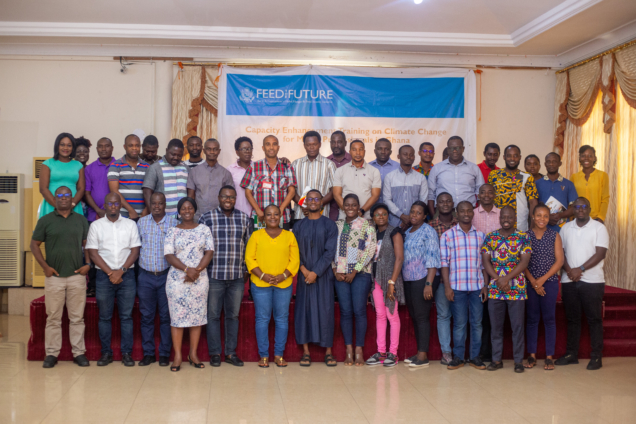The impacts of climate change are worsening as a result of human actions and activities, including indiscriminate felling of trees, water pollution through improper waste disposal, and unsustainable land management.
Educating the public on the dangers of these practices and the need to adopt environmentally sustainable practices are necessary to foster behavioural change and reduce impacts.
The Feed the Future (FTF) Ghana Policy LINK Activity considers the media as an important ally in educating and sensitising the public on climate change, a phenomenon that threatens livelihoods and economic development.
In partnership with the Environmental Protection Agency (EPA), capacity enhancement training on climate change and environmental issues was organised for reporters and editors in Ghana.
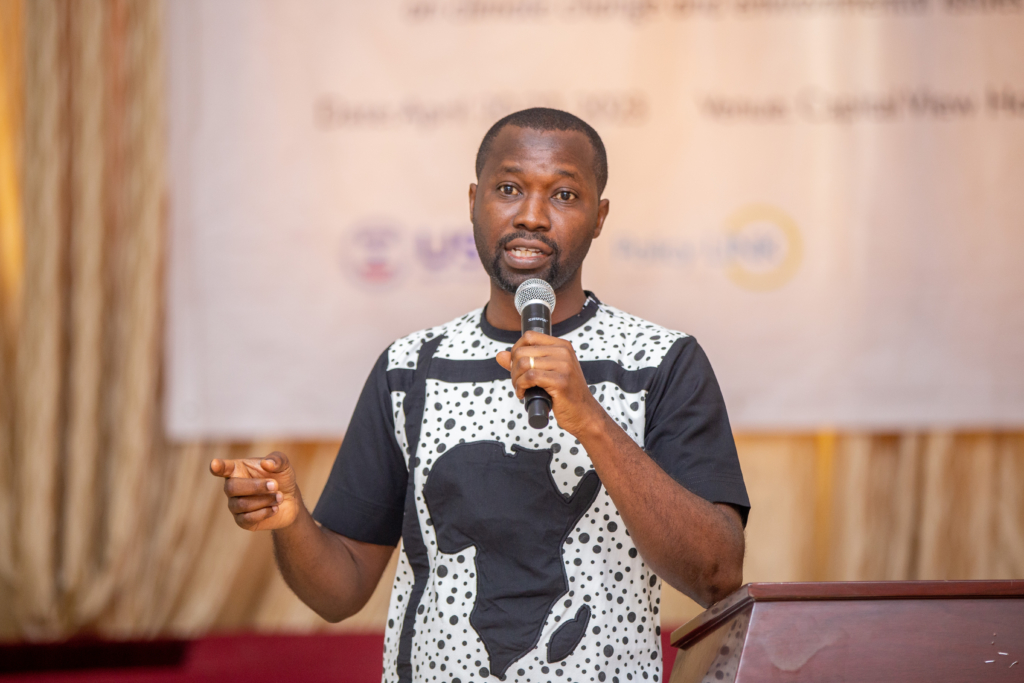
Dr Gerald Forkuor, Climate Change Lead at Policy LINK, entreated journalists to project indigenous innovations and initiatives that promote climate-smart agriculture.
“The media as key actors for education and sensitisation need to increase awareness on climate change issues through accurate reportage, especially in the deployment of technologies by farmers to support their resilience against climate change,” he said.

The media engagement highlighted knowledge of key climate change policies, strategies, and plans on themes such as climate smart agriculture, climate finance, biodiversity, and sustainable land and forest management.
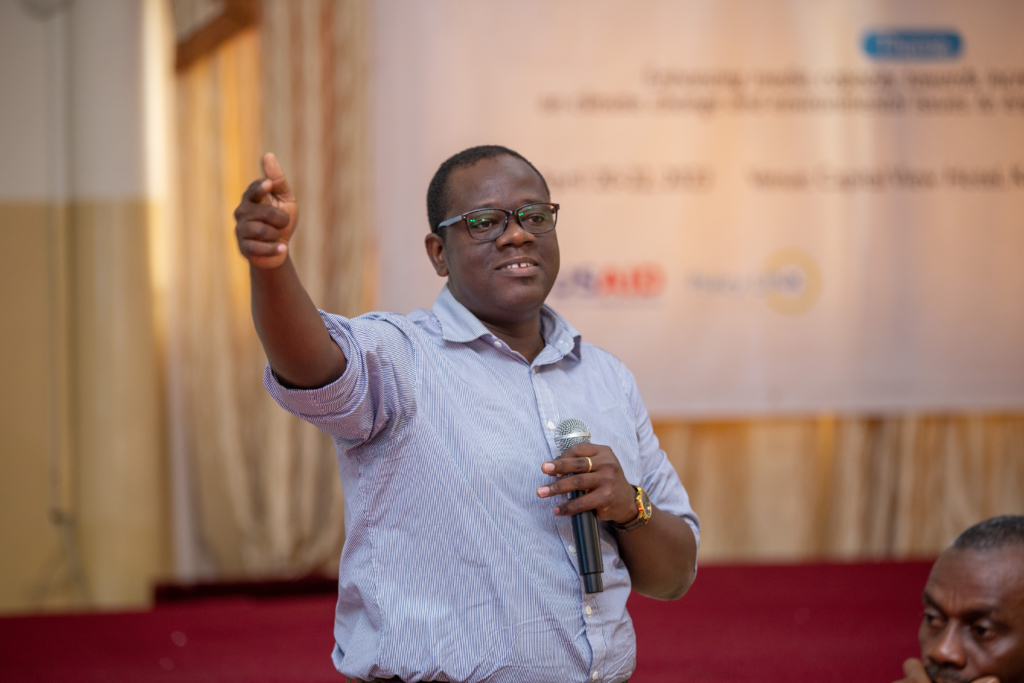
Value of Biodiversity to Agriculture
Dr. Winston Asante, Senior Lecturer at the Faculty of Renewable Natural Resources at the Kwame Nkrumah University of Science and Technology (KNUST), emphasized the value of biodiversity and its contribution to the food and agriculture sector is increasingly being acknowledged in international policy agenda.
“The loss of biodiversity leads to reduced sources of food, structural materials, medicinal and genetic resources,” he observed.
Supplying safe and nutritious food for a growing population poses a number of challenges, especially in increasing food production without jeopardizing the ability of the seas and lands to provide for other essential ecosystem functions and to supply food for future generations.
Biodiversity – the variety of life at genetic, species and ecosystem levels – has been described as vital to efforts to meet the Sustainable Development Goals (SDGs) of the 2030 Agenda.
Dr. Asante spoke about the significant correlation between cocoa yield and water, noting that rainfall is the biggest singular factor influencing distribution of cocoa in Ghana.
“Water and temperature stress in cocoa farms will ultimately trigger and further drive challenges in managing agronomic and other on-farm complexities,” he stated.
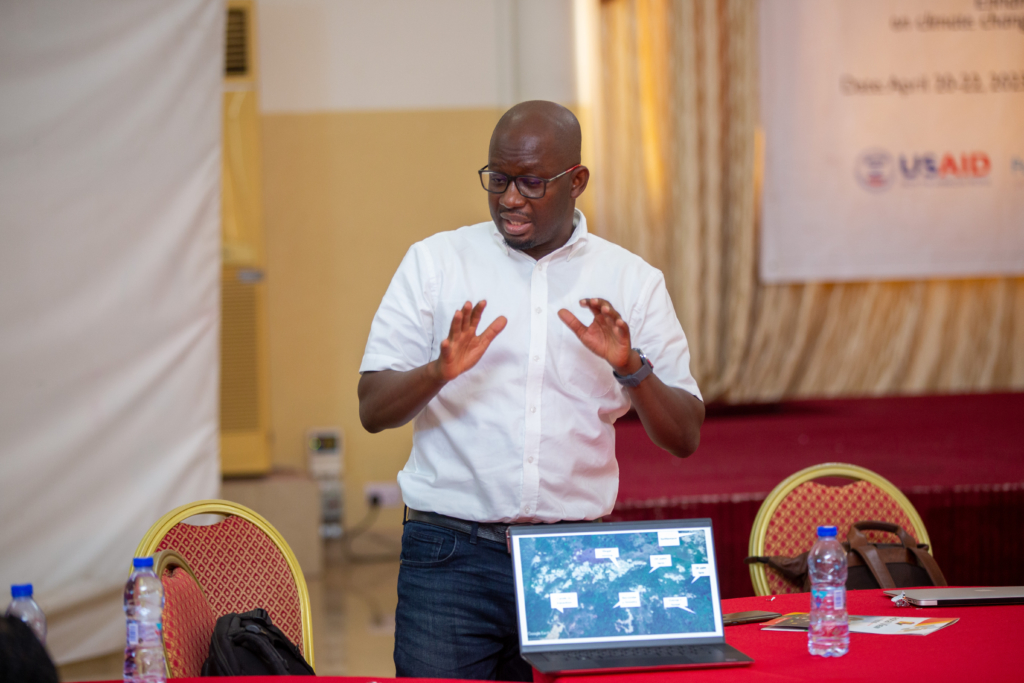
Human-induced Degradation
Due to the effects of management techniques and changes in land use brought on by food and agriculture, food systems are often being undermined.
According to Dr. Kwabena Asubonteng of the Faculty of Natural Resources and Environment, University for Development Studies, population growth, agriculture expansion and deforestation are top drivers of human-induced land degradation.
Activities such as indiscriminate logging, forest burning and unsustainable mining are stresses and land and forests that exacerbate climate change.
Dr. Asubonteng called for the enforcement of laws and policies that restrict certain human activities to help reduce the spate of land degradation.
He also emphasized land restoration as “the process of avoiding, reducing, and reversing land degradation to recover the biodiversity and ecosystem services that sustain all life on earth”.
Climate change policy implementation
The World Meteorological Organisation (WMO) in its annual report: “The State of the Global Climate 2022” has highlighted that the relentless advance of climate change brought more drought, flooding and heatwaves to communities in 2022, compounding threats to people’s lives and livelihoods.
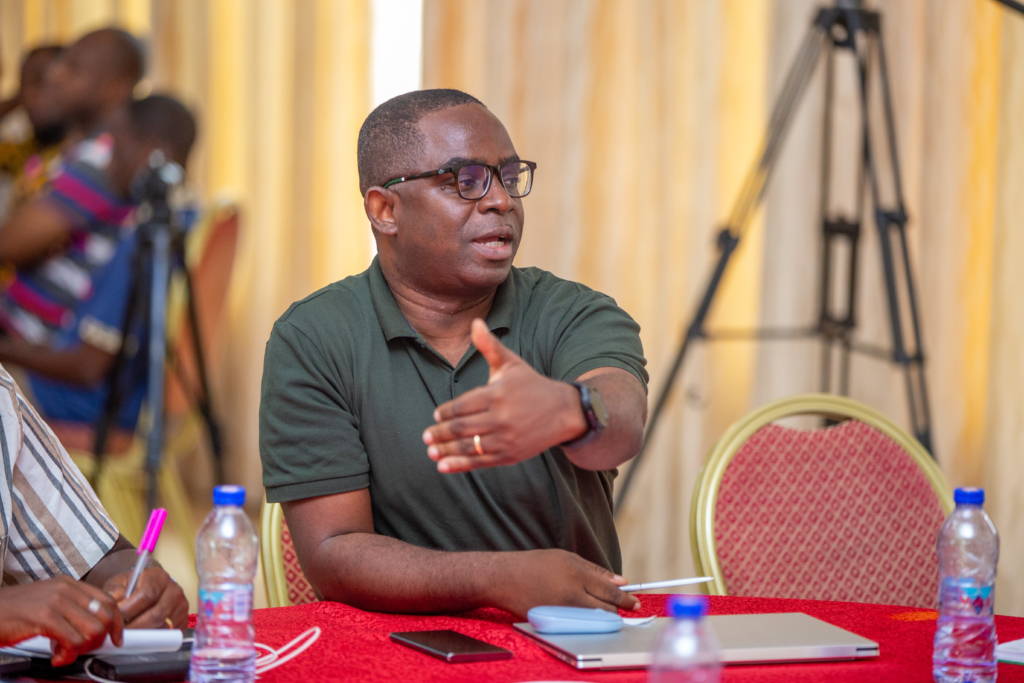
Dr. Daniel Tutu Benefor of Ghana’s Environmental Protection Agency and Focal Person to the UNFCCC says the country is on the path to implementing clear-up climate change policies as a vehicle to achieve the Sustainable Development Goals (SDGs).
The country is exploring opportunities to tap into climate and carbon financing frameworks for its climate mitigation and adaptation programmes.
Latest Stories
-
Gov’t targets completion of 24 stalled projects by end of 2028 – Finance Minister
15 seconds -
2025 Mid-Year Budget Review: This is the Reset President Mahama promised — Ato Forson
1 minute -
We see you, we hear you and we’re working for you – Ato Forson to Ghanaians
27 minutes -
Ghana deserves better than B- – Finance Minister tells rating agencies
28 minutes -
‘Inshallah, President Mahama will deliver’ – Ato Forson assures Ghanaians
35 minutes -
Ghana’s economic confidence rebuilt in under 200 days – Finance Minister Ato Forson
39 minutes -
Jeffrey Schlupp signs for Norwich City
47 minutes -
NPA boss inspects Aviation fuel discharge at Tema Oil Jetty
58 minutes -
We are not out of the woods yet, but second half of 2025 promises to be better – Finance Minister
59 minutes -
Gov’t injects GH₵450m into NIB, preserves GH₵6.4bn depositors’ funds – Dr. Forson
60 minutes -
Ghana’s fiscal position has significantly improved – Finance Minister
1 hour -
‘The cedi is not a burden, it is our badge of honour’ – Finance Minister rallies nation
1 hour -
We are indeed spending and spending at right places – Ato-Forson
1 hour -
Minority petitions president over electoral violence and galamsey crisis
1 hour -
NIB to be listed on GSE; a modern business model to be established – Finance Minister
1 hour

